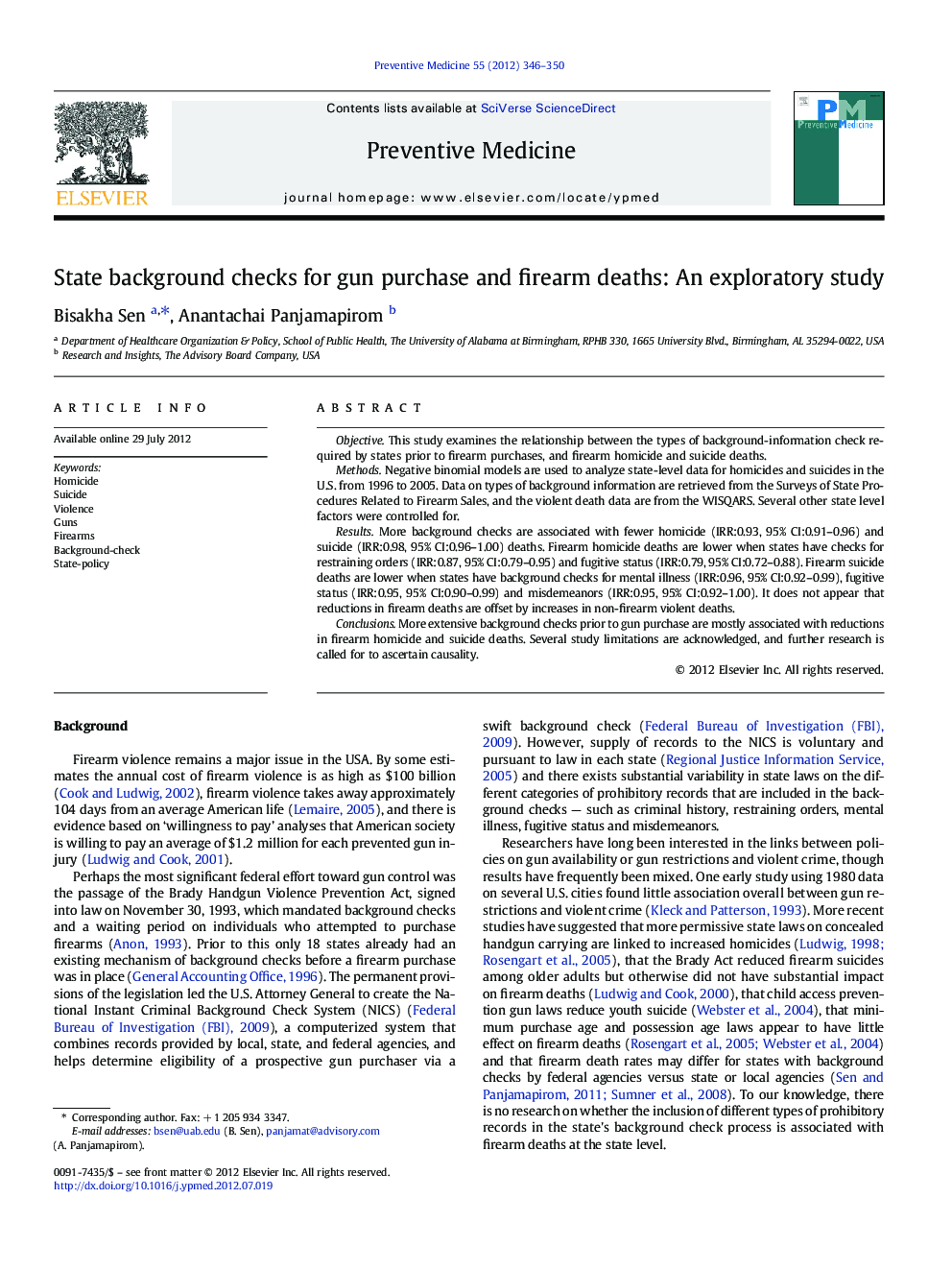| Article ID | Journal | Published Year | Pages | File Type |
|---|---|---|---|---|
| 3100766 | Preventive Medicine | 2012 | 5 Pages |
ObjectiveThis study examines the relationship between the types of background-information check required by states prior to firearm purchases, and firearm homicide and suicide deaths.MethodsNegative binomial models are used to analyze state-level data for homicides and suicides in the U.S. from 1996 to 2005. Data on types of background information are retrieved from the Surveys of State Procedures Related to Firearm Sales, and the violent death data are from the WISQARS. Several other state level factors were controlled for.ResultsMore background checks are associated with fewer homicide (IRR:0.93, 95% CI:0.91–0.96) and suicide (IRR:0.98, 95% CI:0.96–1.00) deaths. Firearm homicide deaths are lower when states have checks for restraining orders (IRR:0.87, 95% CI:0.79–0.95) and fugitive status (IRR:0.79, 95% CI:0.72–0.88). Firearm suicide deaths are lower when states have background checks for mental illness (IRR:0.96, 95% CI:0.92–0.99), fugitive status (IRR:0.95, 95% CI:0.90–0.99) and misdemeanors (IRR:0.95, 95% CI:0.92–1.00). It does not appear that reductions in firearm deaths are offset by increases in non-firearm violent deaths.ConclusionsMore extensive background checks prior to gun purchase are mostly associated with reductions in firearm homicide and suicide deaths. Several study limitations are acknowledged, and further research is called for to ascertain causality.
► We use state-level data on homicides and suicides from 1996–2005. ► We use background checks that each state conducts before gun purchases. ► More background checks are associated with fewer homicide and suicide deaths.
